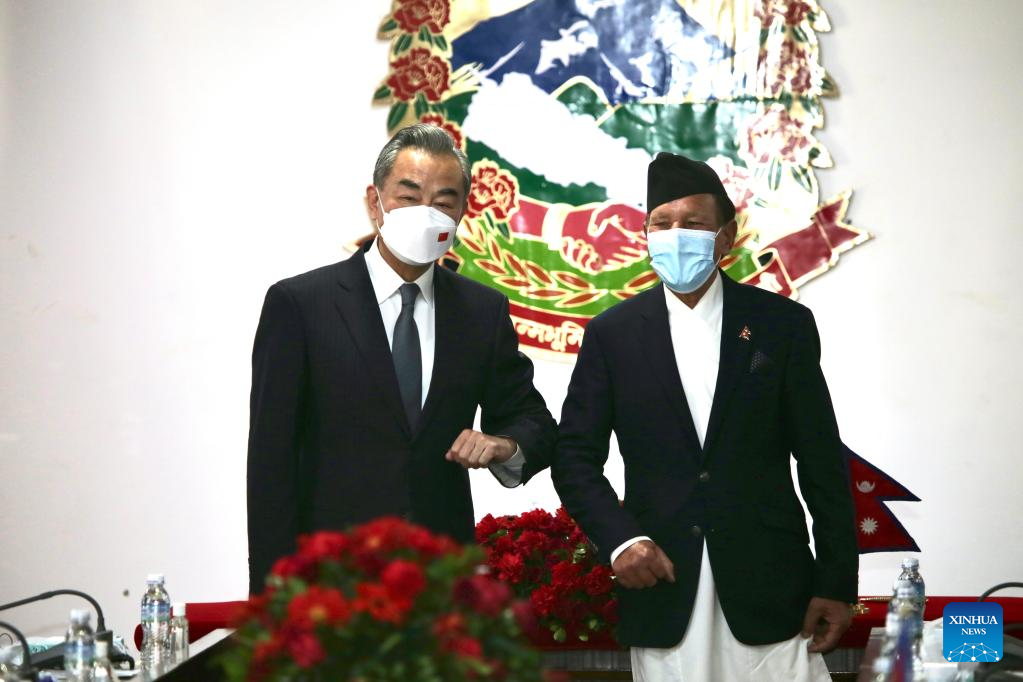
Photo taken on Dec. 3, 2021 shows a meeting of the Joint Commission on the Joint Comprehensive Plan of Action (JCPOA) in Vienna, Austria. (EU Delegation in Vienna/Handout via Xinhua)
State Councilor and Foreign Minister Wang Yi's back-to-back visits to Pakistan, Afghanistan, India and Nepal from Tuesday to Saturday were a low-profile demonstration of China's pragmatic diplomacy.
As well as strengthening the "iron-clad" friendship with Islamabad, Wang's visits represented Beijing's latest efforts to advance its relations with Kabul, New Delhi and Kathmandu.
Some have viewed Wang's trip as a sign that China is trying to take advantage of the Ukraine crisis to strengthen its influence in the region, especially as the three countries are under increasing pressure from the United States.
The once honey-mouthed Washington has been showing the three countries its true colors recently, demonstrating its hostility to the Taliban after the humiliating failure of its 20-year experiment to transpose US-style democracy to Afghanistan, criticizing India after New Delhi rejected the urgings for it to join the US-led sanctions regime against Russia, and coercing Nepal to accept an aid agreement conditional on it ending its cooperation with China.
But those attempting to interpret Wang's visits by viewing them through the same prism that they view the US' diplomatic moves get a distorted picture of China's relations with the four countries.
As Wang's interactions with his hosts in the four countries indicate, China has long-established friendships with the four countries, such that his meetings did not need such routine diplomatic descriptions describing them as "productive" and "candid", as that was to be expected.
Their common experience as developing countries that have freed themselves from the colonial yoke has strengthened their shared commitment to struggle for diplomatic independence and development.
Therefore, Wang's visit to the region originates from the shared need of the countries to advance their relations and deepen their pragmatic win-win cooperation in an increasingly volatile world, rather than from a speculative motive of China to take advantage of any supposed switch in focus by Washington.
China never targets a third country in the development of its relations with other countries.
Cooperation between the four countries and China enjoys vast potential, and tapping that potential will inject strong impetus into regional development and prosperity.
Unlike Washington which is trying to divorce Beijing from the rest of the world, Beijing is not trying to exclude the US from cooperation in the region. It always keeps the door open for cooperation with the US, and its commitment to work together with the US in both economic cooperation and solution of hot issues remains consistent.
China does not engage in geopolitical games, instead it calls on countries to join hands to safeguard peace and stability in the region and the world at large.
It is in this light that Wang's visits should be viewed, as they have stepped up China's communication with the four countries to enhance their coordination and mutual support so as to promote mutually beneficial cooperation for common development.


